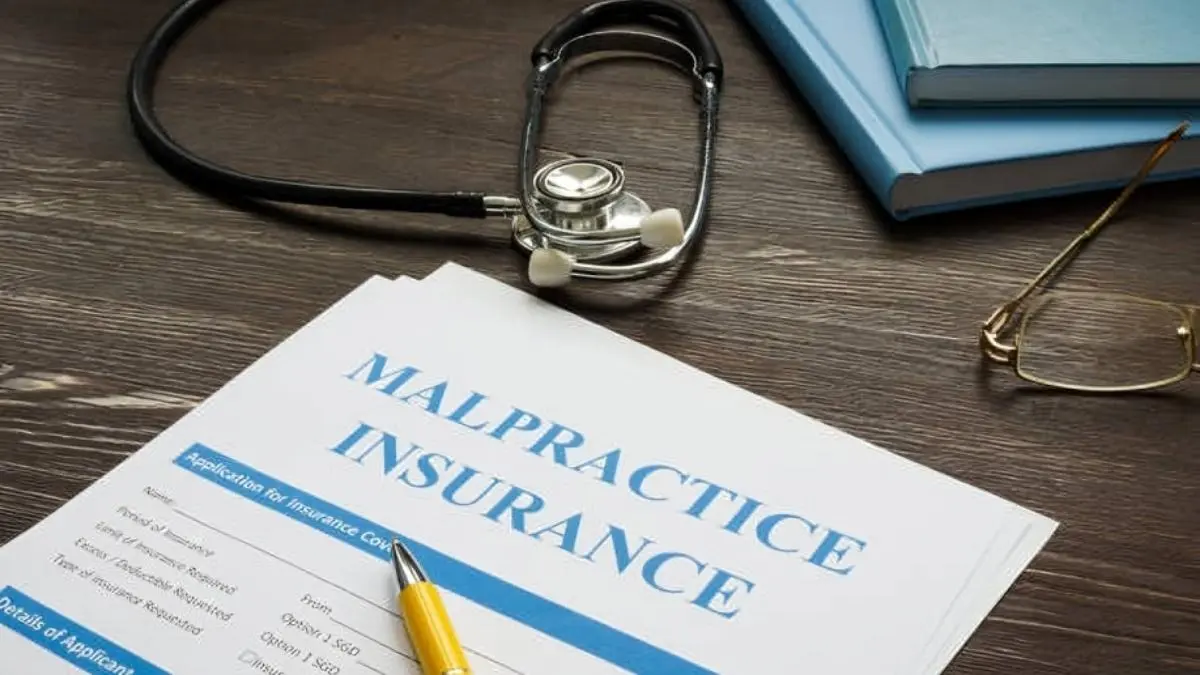INSURANCE
Ensuring Safety and Confidence: The Role of Medical Liability Insurance

Ensuring Safety and Confidence: The Role of Medical Liability Insurance
The Importance of Medical Liability Insurance
Medical professionals face daily risks, even when providing the highest level of care. Unexpected complications, misdiagnoses, or patient dissatisfaction can lead to legal claims, which can be costly and time-consuming. Having the right coverage helps protect healthcare providers from financial loss, ensuring they can continue their work without the constant worry of lawsuits. This safeguard is crucial for preserving the confidence between healthcare providers and their patients, enabling professionals to concentrate on providing high-quality care.
Doctor malpractice insurance plays a key role in safeguarding physicians from the impact of legal claims. It covers legal fees, settlements, and other costs that may arise from malpractice lawsuits. Without proper coverage, a single claim could threaten a doctor’s career and financial stability. By securing the appropriate insurance, healthcare providers can practice confidently, knowing they have the necessary protection to handle unexpected challenges.
Types of Medical Liability Coverage
The subtleties among the different types of medical liability insurance can significantly affect the degree of protection a healthcare provider offers. Grasping these distinctions is crucial for choosing the appropriate option. The two main types of coverage are occurrence coverage and claims-made coverage. Both offer specific advantages designed to meet the unique requirements of healthcare professionals.
Occurrence Coverage
Occurrence coverage offers comprehensive protection by covering any incident during the active policy period, regardless of when a claim is filed. This feature makes it an attractive choice for many because it removes the worry about incidents coming to light after leaving practice or when an insurance policy has ended. An occurrence policy provides enduring peace of mind, covering healthcare professionals long after their roles have changed or concluded, ensuring past actions are consistently shielded.
Claims-Made Coverage
In contrast, claims-made coverage offers protection but requires active policy status when an incident happens and when a claim is filed. While claims-made policies often come with a lower premium cost initially, they necessitate the addition of tail coverage when the policy ends to maintain protection. This extension of coverage can still render claims-made policies an economical option for individuals beginning their medical careers, facilitating customized financial planning.
How to Choose the Right Policy
Choosing the right medical liability insurance requires a thorough evaluation of different aspects, including the level of coverage needed, possible exclusions, and financial considerations like premium expenses. These premiums vary significantly based on specialty, geographical location, claim history, and state regulations. Consulting an expert, such as an insurance advisor or a legal expert specializing in medical insurance, is recommended to help navigate these complexities and tailor a policy to individual professional needs, ensuring comprehensive coverage without unnecessary expenses.
Challenges Facing Healthcare Practices
The healthcare industry is characterized by continuous evolution and adaptation. Professionals within it must contend with many challenges, ranging from changing regulations to the rapid development of new technologies and shifts in patient expectations. Navigating this complex landscape requires constant vigilance and a proactive approach to risk management, including acquiring suitable liability insurance. Awareness of these adjustments is essential for reducing malpractice risks and providing high-quality patient care. The significance of ongoing education and frequent industry updates cannot be emphasized enough in this effort.
Regulatory Changes
Healthcare regulations are designed to enhance patient safety and improve the quality of care. However, they are often subject to revision and updates, which can pose challenges for practitioners who must remain compliant. Proactively learning about regulatory shifts and adjusting practices accordingly is essential for adhering to legal and professional standards.
How Liability Insurance Supports Reputation Management
Liability insurance extends beyond legal and financial protection to encompass reputation management, a critical aspect of a healthcare professional’s career. Effectively handling claims with comprehensive insurance coverage backing helps maintain and enhance a professional’s reputation. Quick and transparent dispute resolution reinforces the trust of patients and peers alike, ensuring that a healthcare provider’s good standing is preserved. As such, liability insurance is instrumental in protecting the credibility and trustworthiness necessary for a long, successful career in healthcare.
Real-Life Scenarios Underlining the Need for Coverage
Real-life examples serve as a compelling reminder of the importance of having robust medical liability insurance. Various studies, such as those in medical malpractice case statistics, reveal that even the most diligent and skilled professionals may face legal action. These incidents demonstrate that malpractice claims can arise from various situations, some of which might be beyond a healthcare provider’s immediate control. This further emphasizes the need for adequate insurance to cover unplanned legal expenses.
Your Action Plan: Securing a Future with Confidence
To maintain ongoing professional security, healthcare professionals should consistently assess and revise their insurance policies to align with their current requirements and the industry’s most recent trends. This requires developing a strategic plan with periodic consultations with insurance providers and legal advisors to guarantee consistent and comprehensive coverage. Staying informed about policy options through industry webinars and publications helps professionals anticipate and mitigate potential issues before they become significant challenges.
Why Staying Informed Matters
The constantly evolving healthcare sector requires practitioners to stay updated on recent advancements and trends. Staying informed about these changes can provide healthcare providers with crucial insights for effectively managing professional risks. By adjusting policies to reflect current situations and readying themselves for upcoming challenges, healthcare professionals can ensure they can deliver outstanding care in a continually shifting environment.
-

 BIOGRAPHY9 months ago
BIOGRAPHY9 months agoBehind the Scenes with Sandra Orlow: An Exclusive Interview
-

 HOME1 year ago
HOME1 year agoDiscovering Insights: A Deep Dive into the //vital-mag.net blog
-

 HOME1 year ago
HOME1 year agoSifangds in Action: Real-Life Applications and Success Stories
-

 BIOGRAPHY1 year ago
BIOGRAPHY1 year agoThe Woman Behind the Comedian: Meet Andrew Santino Wife




























